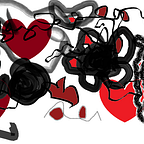The Power of Positive Racial Messages in Raising Black Children
Socialization is “the process by which we learn the ways of a given society or social group so that we can function within it” (Elkin & Handel, 1960, p.2). Socialization conveys the behaviors, emotions needed to navigate the social world and influences how young children construct meaning. For Black parents, socialization requires savvy, racial literacy, and conscientiousness. Black parents can use positive racial socialization as a counter tactic to build the cognitive apparatus children need to navigate a disorienting and hostile environment.
I had a brilliant mother who knew the power of positive racial socialization through her lived experience. In my mother’s household, education was an expectation and loving your Blackness a necessity. She knew she had to convey specific messages, behaviors, and symbols to us on the myriad identities and expressions of our Blackness. For example, using the term “Black is beautiful” is a message that conveyed pride, self-acceptance, and redefined the derogatory pejorative into one of solidarity and acceptance. It was her brilliance that took my siblings and me on frequent trips back and forth to the library. Our books were those selected from the “Afro-American” literature section and were those like Moja Means One: Swahili Counting Book, Bringing the Rain to Kapiti Plain, and the Snowy Day.
She supervised our TV time and music with a high degree of restrictions and a lesser degree of freedom. She would allow us to watch Sesame Street and Electric Company, television where Black and Brown children could co-exist in a neighborhood and be brilliant. She required us to watch the whole series of Roots. She was extremely aware of the influence of media on the psyche of Black minds and so made sure the visual images we conjured were of pride and acknowledged our struggle as Black people in the United States. We would sit around in circles and sing folks songs like Kum Bah Yah, and she would change the words like “see the Black baby oh my Lord.”
It was her brilliance that shined in the conversations she had with us about the beauty of Black and Brown people. She told us stories of Africa and about kingdoms in Egypt and warriors such as Mansa Musa. In the 1970s and 80s, she never bought my sister and me white dolls. Every single doll she purchased for us were those dolls that matched our skin tones. She never tried to straighten our hair with “hot combs” and consistently braided, cornrowed our dos with beads flapping in the wind. When my sister and I started elementary school, my mother informed us that the school would ask us to stand up for the pledge of allegiance. She said, “you do not have to stand because this country has yet to live up to the words you have to say in that pledge and, until it does, you sit down.” If the teachers or principal had a problem with it, then she would come up to that school and tell them a word or two. Living with my mother meant she would sometimes send us into the public schools and then teach us at home. There was no compromise when it came to educating her children — you are going to do it right, treat my children fair, or I am going to do it. She conveyed the importance of using a critical lens of the system and reinforced pride in our African ancestry. Kim and Hargrove (2013) write:
Black parents attempt to edify their children on how to circumnavigate racialized milieus, while simultaneously instilling them with a sense of pride and confidence in their racial identity. In other words, these parents paradoxically teach their children how to react given the likelihood of marginalization based on their race as they encourage them to embrace being Black.
In a time where we must still contend with derogatory images in the media as well as contend with people who internalize this myth and perpetuate derogations, the power of positive racial socialization is even more critical. When Black children are killing themselves because they are unable to buffer bullying, slurs, and other forms of emotional assault, it becomes crucial to build the cognitive apparatus needed to save them. My mother gave me this; every time I felt horrible for being dark skinned, questioned my intelligence, or felt as if something was wrong with my Blackness I go back to those messages, those feelings of having Black pride and all she gave me to persevere.
The power of racial socialization in raising black children is a tactic designed to imbue the healing and resistance strategies needed to navigate American society and build identities that thrive. Black mother’s, father’s, and caregivers reach beyond the myths and find the words, symbols needed to build our children up. Tell them the behaviors they see where black people don’t love each other, are fighting and hurting each other is not who we are, nor is it who we are meant to be. Check out these folks to learn more:
Dr. Riana Anderson at https://www.rianaelyse.com/ or https://www.rianaelyse.com/in-other-news
Dr. Howard Stevenson https://www.youtube.com/watch?v=EV3OmxrowWE
